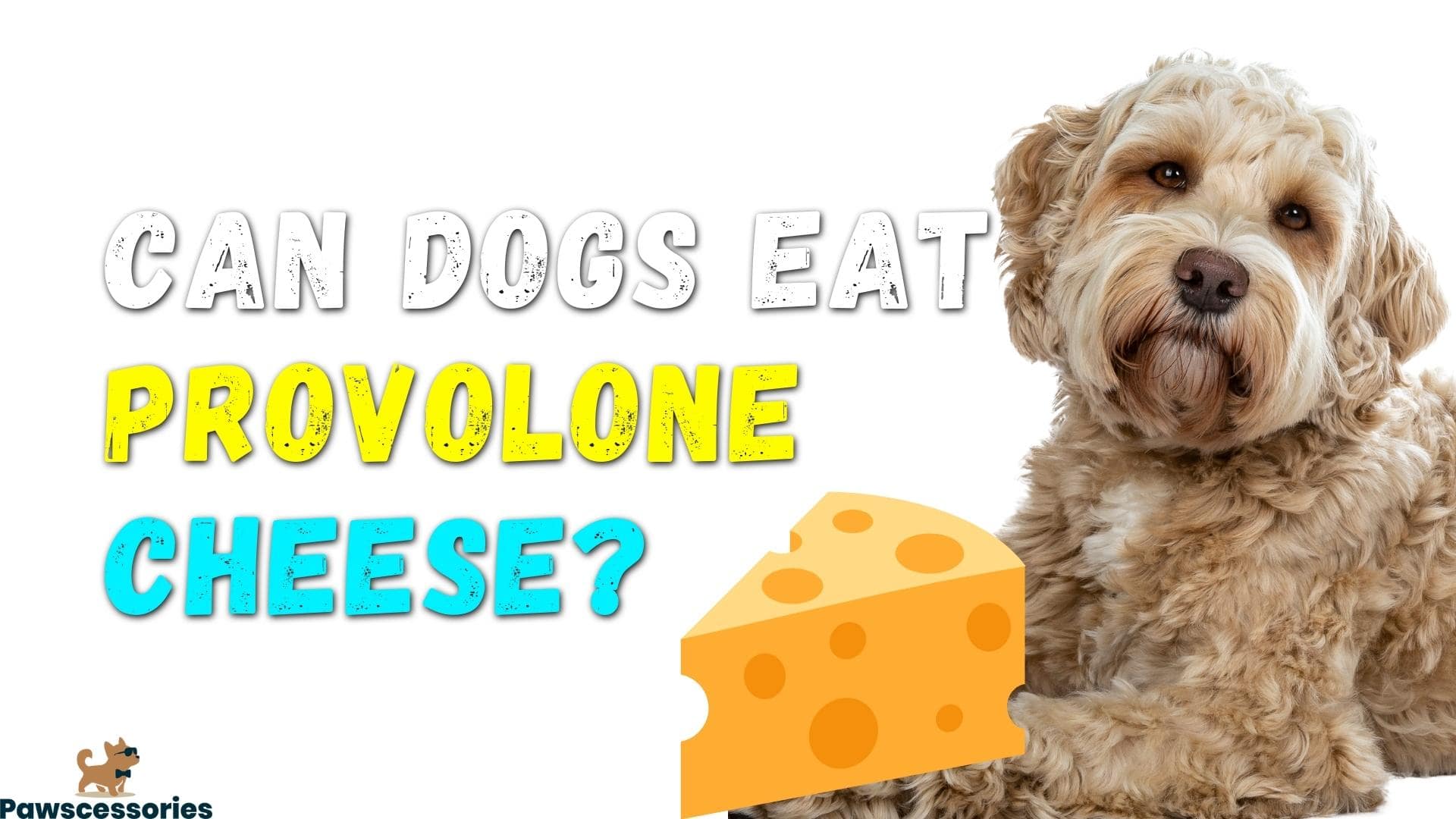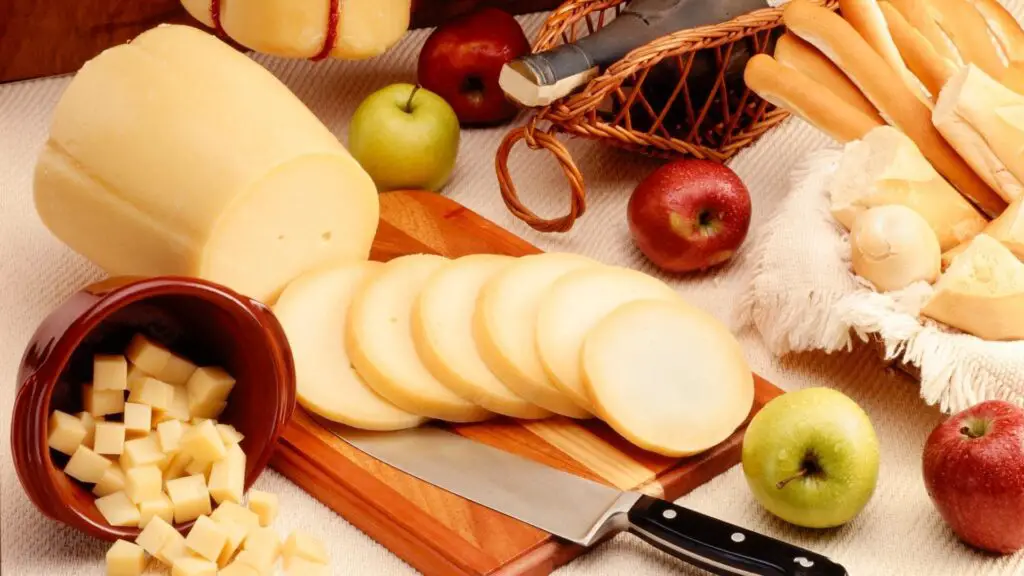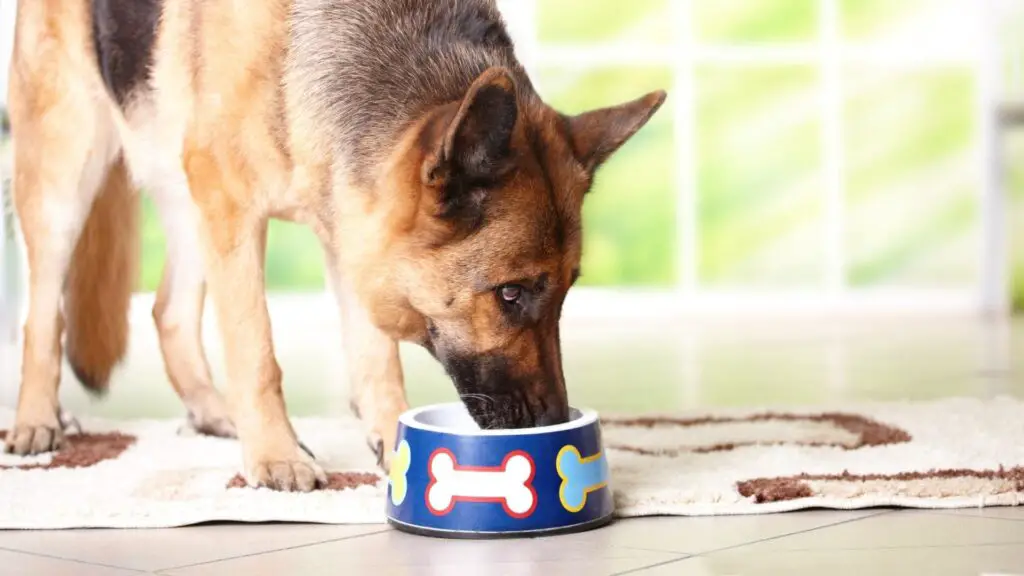Pawscessories is reader-supported. When you buy via links on our site, we may earn an affiliate commission at no cost to you.
Learn more.
Do you have a dog that loves cheese as much as mine does?
Once I start cooking delicious grilled cheese, my dog immediately comes over and positioning himself underneath me, in hopes that I’ll drop some food. Even though all cheeses share many similarities, there are some types that would be viewed as safer for dogs to consume.
One of my favorites is provolone cheese, so I did some digging to find out if it’s safe for dogs to eat this.
So, can dogs eat provolone cheese? The answer is yes, but in moderation. Provolone cheese is not considered toxic to dogs unless toxic ingredients have been added. However, cheese is high in fat and sodium, so If your dog overeats, your dog may experience digestive issues like vomiting or diarrhea.
In this article, you’ll discover:
- Why Provolone cheese can be good or bad for dogs
- The dangers & benefits associated with dogs eating provolone
- What to do if your dog eats too much cheese
Let’s dive in.
Table of Contents

What Is Provolone Cheese?
Provolone cheese is an Italian cheese that can be eaten fresh or aged. It’s a white cheese with a mild flavor derived from cow’s milk.
Provolone is part of the pasta filata family, which includes mozzarella. This type of cheese can be eaten alone or melted on top of dishes like pizzas and sandwiches.
Provolone is a good source of protein, phosphorus, and calcium. One ounce (28 grams) of provolone cheese contains:
- Calories: 100
- Protein: 7 grams
- Fat: 8 grams
- Carbs: 1 gram
- Sodium: 420 mg
Provolone cheese is also a good source of vitamin A and B12. These vitamins are essential for a dog’s immune system, vision, and red blood cell production.
Can Dogs Eat Provolone Cheese?
Provolone cheese comes from cow milk and tends to be easier on a dog’s stomach.
This is because provolone cheese falls on the lower end of the lactose spectrum.
Lactose is a sugar found in milk and other dairy products that can cause an upset in a dog’s stomach.
Even so, lactose-intolerant dogs will still have issues when eating too much of this cheese.
So can dogs have provolone cheese?
Yes, dogs can eat provolone cheese in moderation. This cheese is not toxic to dogs and can provide them with some beneficial vitamins and minerals.
Provolone cheese is a low-carb cheese with only 0.5 grams of sugar. However, it’s still high in fat and sodium for a dog. So, limiting your dog’s intake is essential.
Vets always recommend testing foods in small amounts before considering giving them full-sized treats.
This is to gauge your dog’s tolerance and see if eating the food has adverse effects on your dog.
Related Reading: Can Dogs Eat Parmesan Cheese? Dangers & Benefits
How Much Provolone Cheese Can You Feed Your Dog?
When feeding your dog cheese, always err on the side of caution and give them a tiny amount at first.
Start by giving them a few tiny pieces of shredded cheese.
If they have no adverse reactions after 24 hours, you can slowly increase the amount you give them.
Should they display an adverse reaction, stop feeding them the cheese.
Lastly, treats like provolone cheese should only account for 10% of a dog’s daily intake. In contrast, 90% of what dogs eat should be their main dietary food.
So if the provolone cheese doesn’t seem to bother their belly, just make sure to treat them in moderation (under 10% of their total calories consumed per day).
Is Provolone Cheese Good For Dogs?

To get the most benefits from feeding your dog provolone cheese, try to choose one that’s low-fat, lactose-free, and has no added sugars or flavorings.
Always check the ingredients to make sure there is nothing that could pose a risk for your dog.
Here are a few of the benefits you can expect from feeding your dog provolone cheese (in moderation):
Easy Training
It’s no secret that dogs drool over cheese. My dog Enzo is crazy for cheese and will stop whatever he is doing when I say the word “cheese”.
This is extremely valuable for training dogs. For most dogs, cheese is considered a high-value reward, so it can be a great tool for training your dog.
If you know your dog loves cheese, provolone is one of the best options to use since it’s one of the better cheese options.
This is because, as I mentioned before, it’s lower in lactose, so there’s less of a chance that it will cause an upset stomach.
Vitamins & Minerals
Like all cheese, provolone is a good source of calcium for dogs. Calcium is vital for bone health in dogs.
In addition to calcium, provolone cheese also contains other beneficial vitamins and minerals like phosphorus, vitamin A, zinc, and vitamin B12.
These are all essential nutrients for a dog’s overall health. Just remember that too much of anything can be bad for your dog so limit their intake.
Protein
Provolone cheese is also a good source of protein for dogs. Protein is essential for a dog’s diet and helps them build muscle, repair tissues, and create enzymes.
While most dogs get enough protein from their regular diet, some may benefit from the extra amount they’d get from this cheese.
This is especially true for working dogs or those that are very active.
So, if your dog needs an extra protein boost, provolone cheese can be an excellent option to add.
As I’ve already mentioned, if a dog consumes a high or frequent amount of this cheese, the saturated fat in this cheese can lead to life-threatening issues.
Related Reading: Can Dogs Eat Babybel Cheese? Risks & Tips If They Ate The Wax
Is Provolone Cheese Bad For Dogs? (Dangers)

While cheese can be a healthy treat for dogs in moderation, there are some dangers to consider before feeding your dog this cheese.
High Fat
The most significant danger is the high-fat content. Provolone cheese is about 50% fat. For dogs, this can lead to weight gain and obesity.
Obesity in dogs can lead to a host of health problems like joint pain, diabetes, and respiratory issues.
Lactose
Another danger to consider is the lactose content. Even though provolone cheese is lower in lactose than other cheeses, it can still cause stomach upset in some dogs.
Symptoms of too much lactose can include vomiting, diarrhea, and gas. If your dog consumes too much cheese and starts showing these symptoms, it’s important to contact your vet immediately.
Salt
Lastly, another danger to consider is the salt content. Provolone cheese is quite high in salt. For dogs, this can lead to dehydration and an electrolyte imbalance.
Symptoms of too much salt can include excessive thirst, lethargy, and vomiting. If your dog consumes too much cheese and starts showing these symptoms, it’s important to contact your vet immediately.
Can Dogs Die From Provolone Cheese?
If a dog eats too much of this cheese in one sitting or eats it frequently, it can lead long term health problems or, in severe cases, death.
An example is pancreatitis, a severe and potentially life-threatening condition that occurs when the pancreas becomes inflamed.
Symptoms of pancreatitis in dogs include:
- Lethargy
- Vomiting
- Diarrhea
- Loss of appetite
- Abdominal pain
- Dehydration
- Fever
- Increased heart rate
- Difficulty breathing
Dogs with pancreatitis often require antibiotics, IV fluids, and rest. If the condition is severe, your dog may need to be hospitalized. Left untreated, pancreatitis can lead to organ failure and death.

Other Frequently Asked Questions
Is Provolone Cheese Toxic To Dogs?
No, provolone cheese is not toxic to dogs, but it can pose some health risks when consumed in large quantities.
Can Yorkies Eat Provolone Cheese?
Yes, Yorkies can eat provolone cheese, but it is best to give them tiny pieces since they are a small breed. However, 10% of their daily calories can come from treats like provolone cheese.
Other posts you may find interesting:
Can Dogs Eat Boba? What You Need To Know (We Asked Vets)
